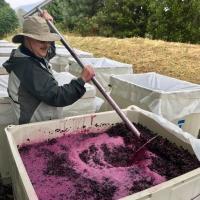-
Welcome to the eG Forums, a service of the eGullet Society for Culinary Arts & Letters. The Society is a 501(c)3 not-for-profit organization dedicated to the advancement of the culinary arts. These advertising-free forums are provided free of charge through donations from Society members. Anyone may read the forums, but to post you must create a free account.
The Progressive Wine List
-
Similar Content
-
Shaoxing Wine 1 2
By liuzhou,
- 45 replies
- 24,735 views
-
- 335 replies
- 153,812 views
-
- 283 replies
- 76,076 views
-
- 4 replies
- 1,651 views
-
- 2 replies
- 2,145 views
-
-
Recently Browsing 0 members
- No registered users viewing this page.




Recommended Posts